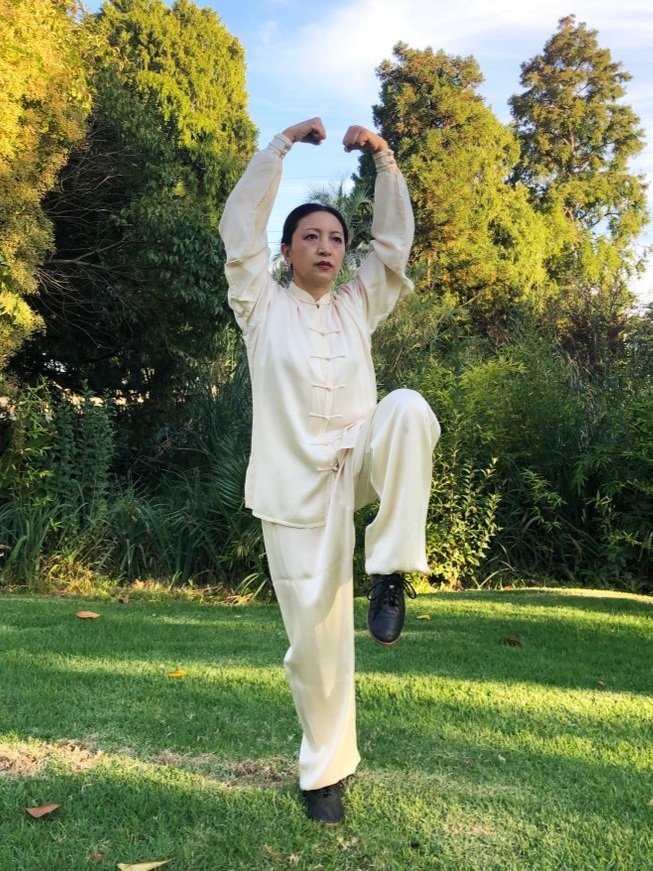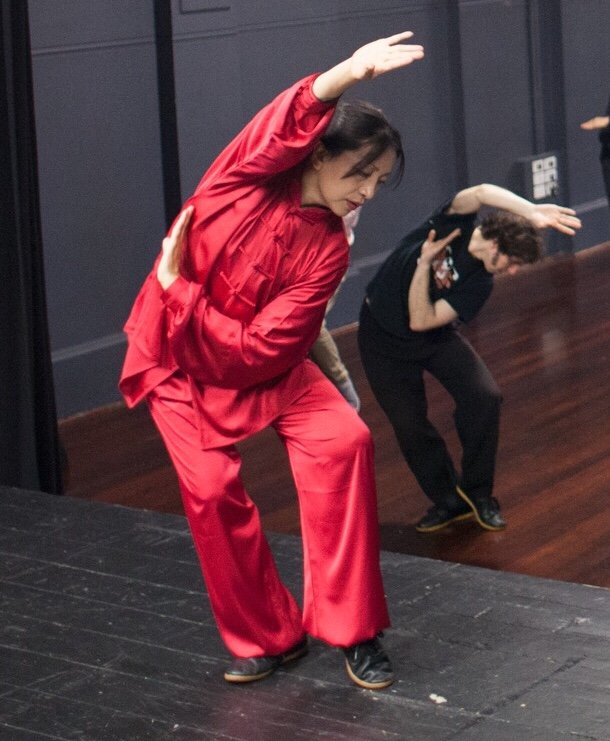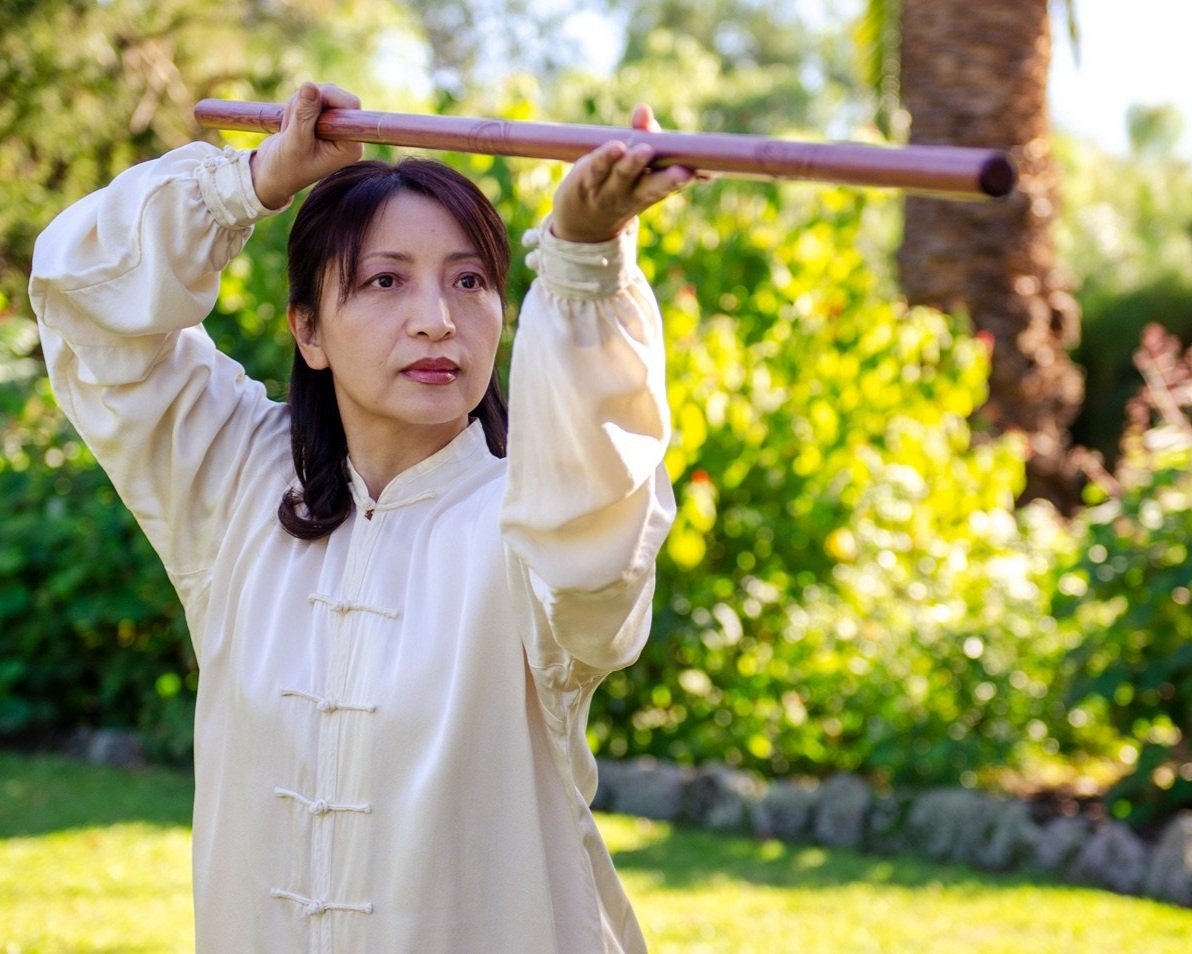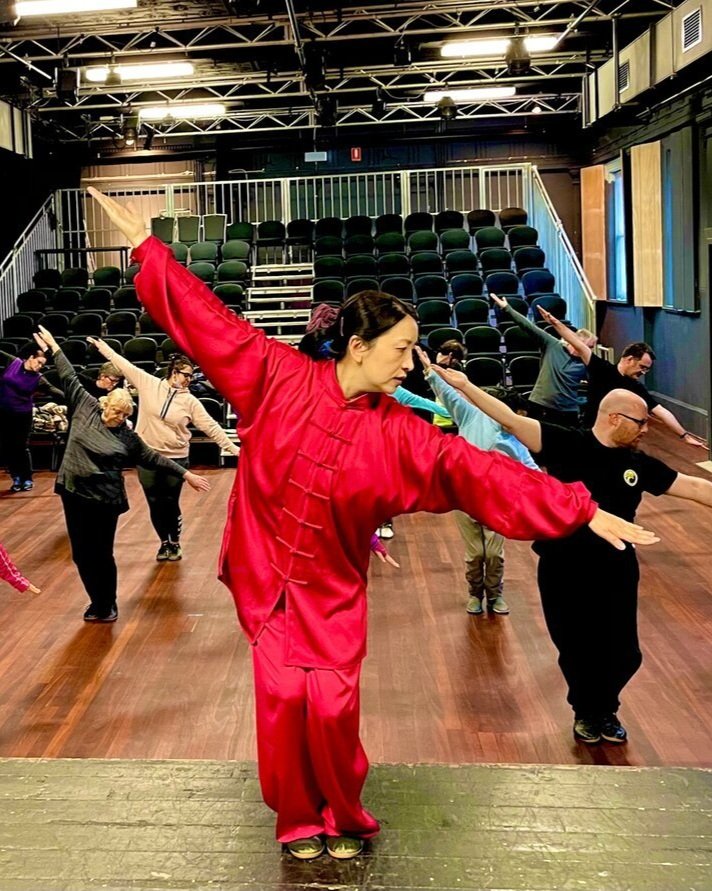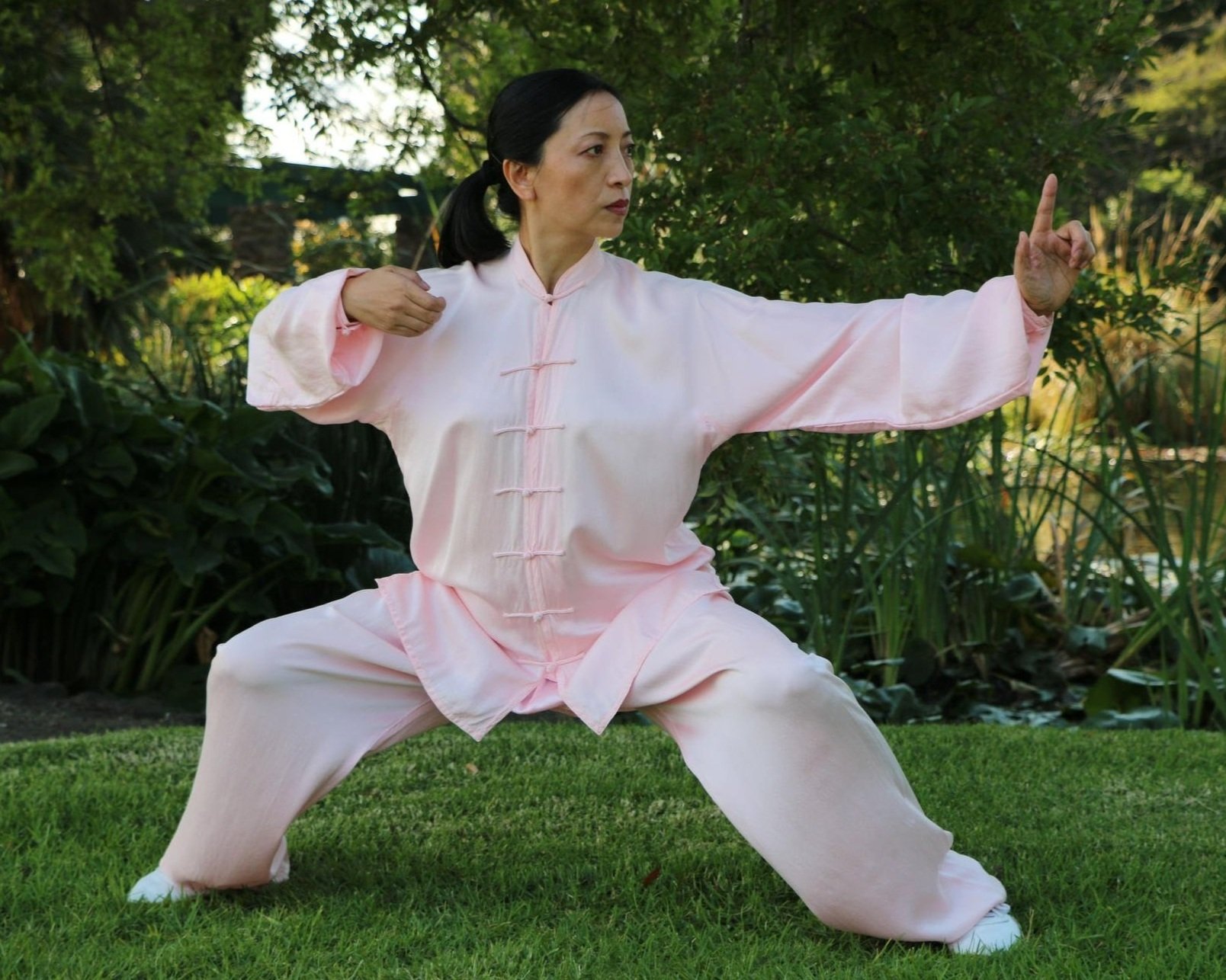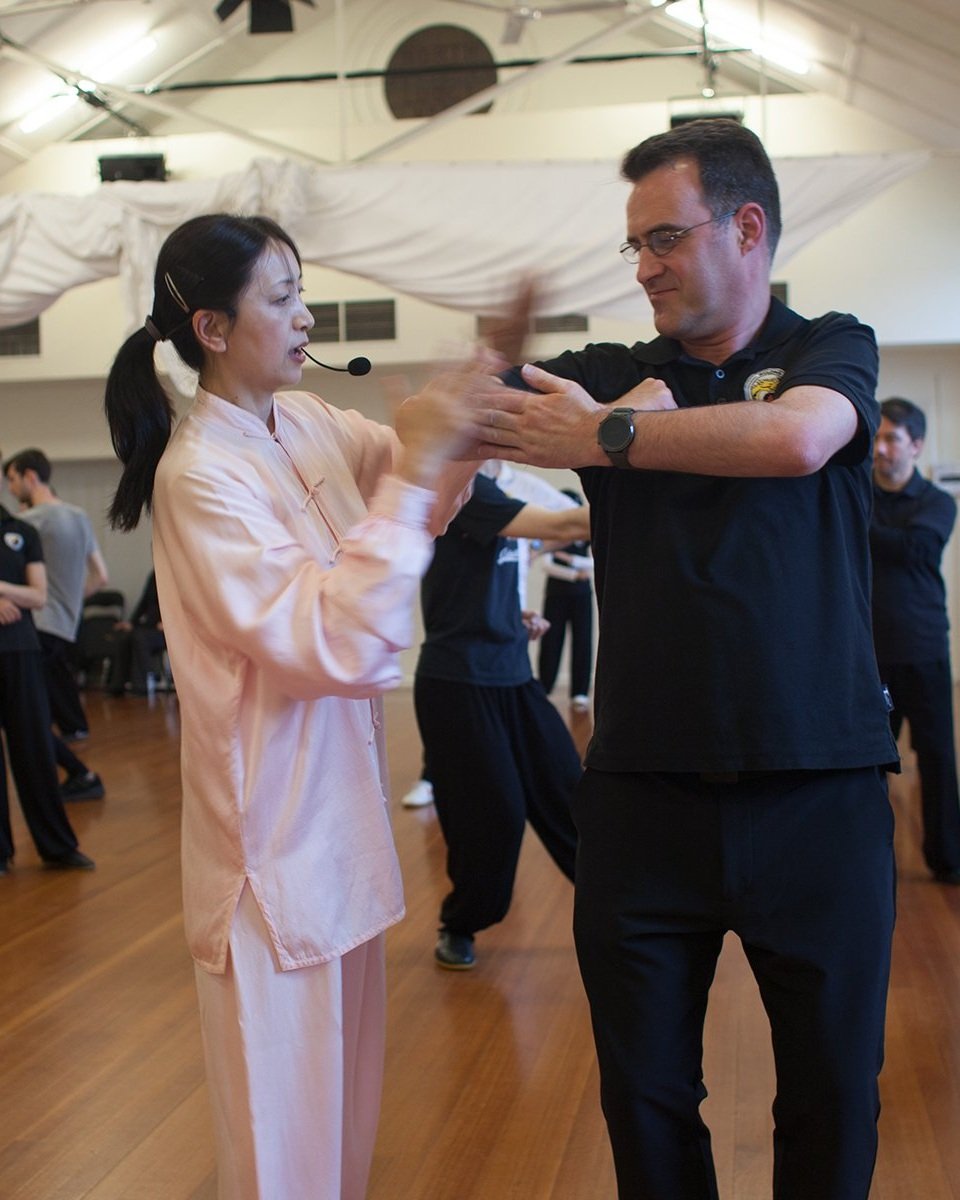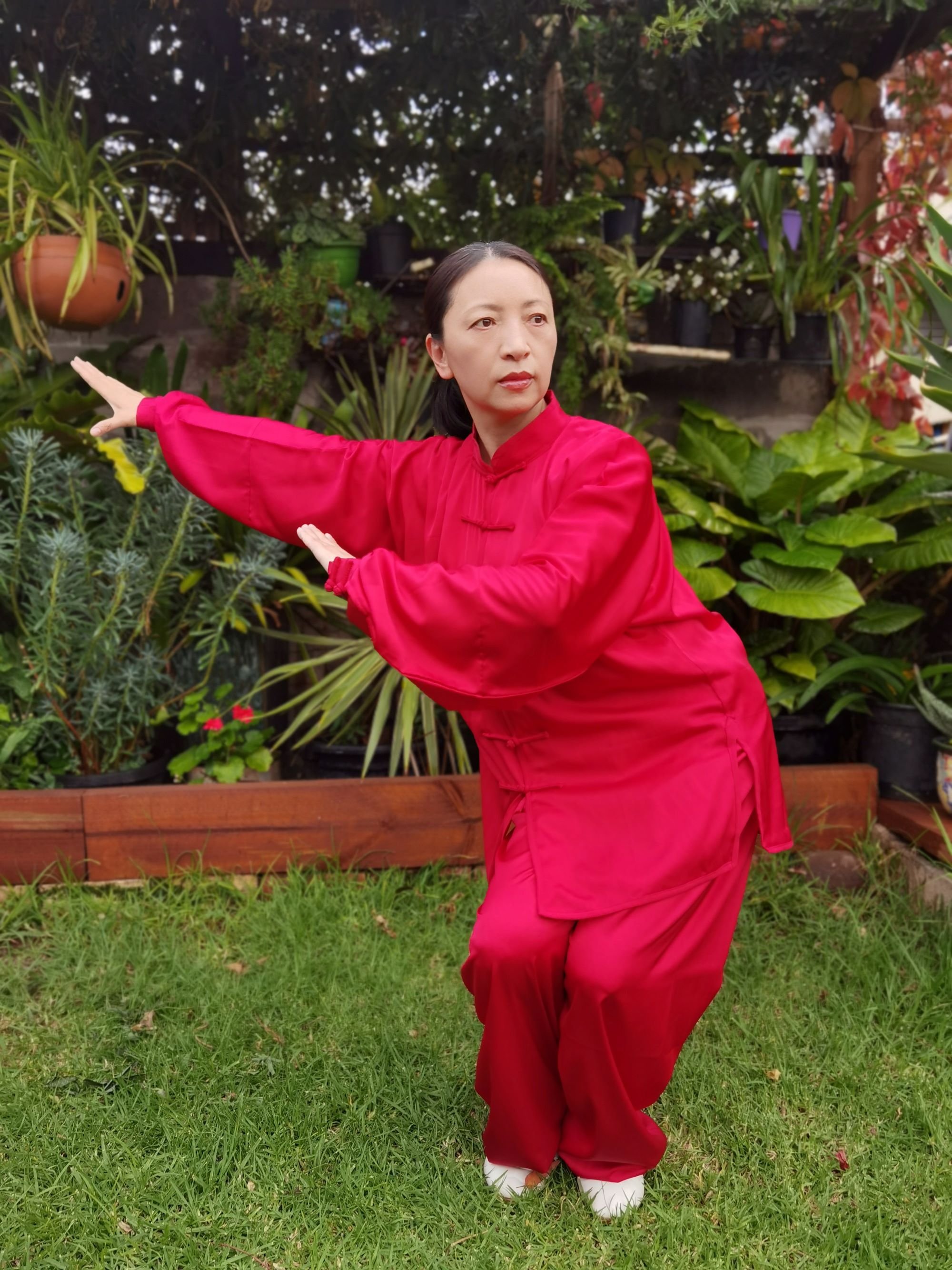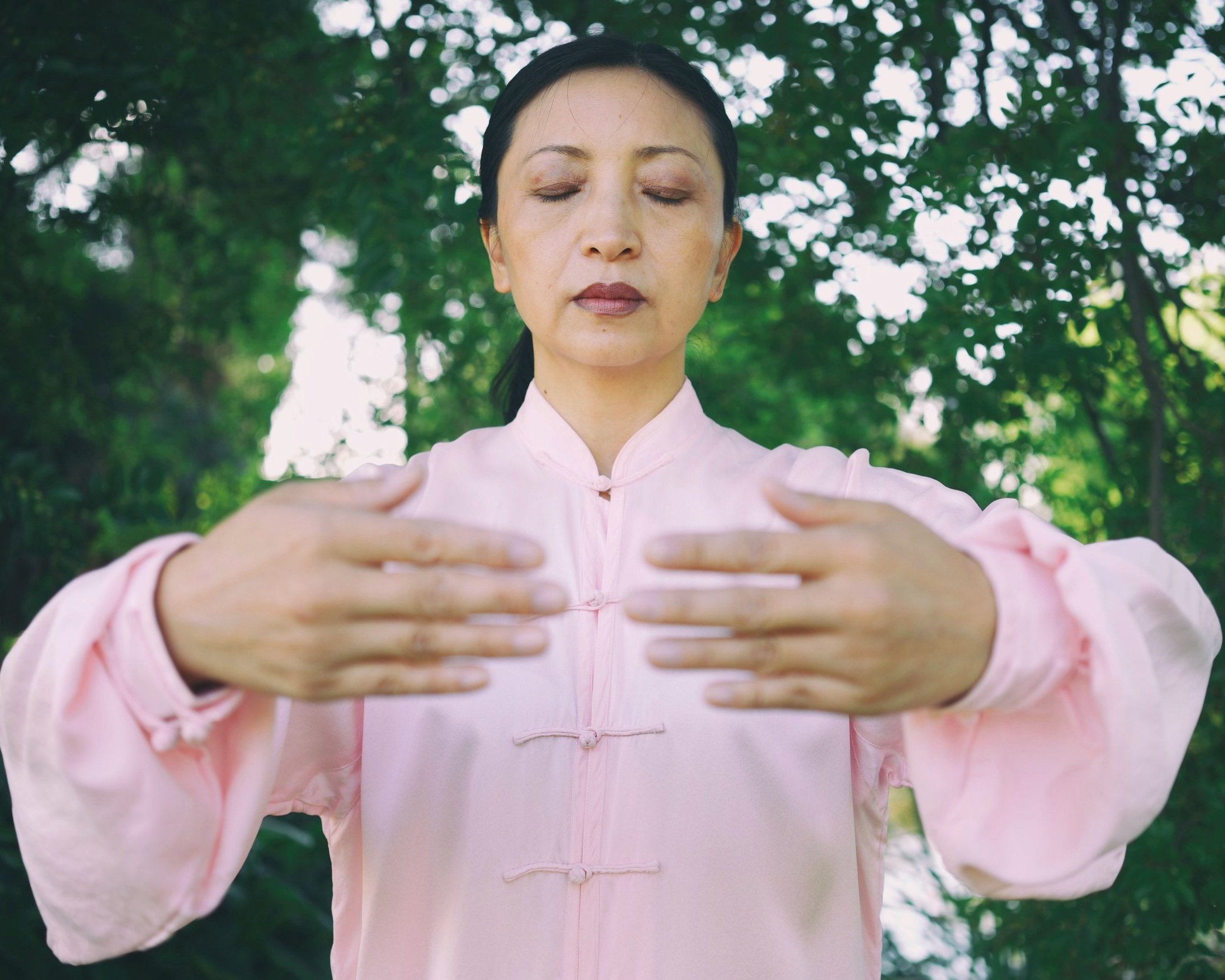Qigong
What is Qigong?
Qigong is a traditional Chinese health practice that coordinates breathing patterns with movement to maintain and improve health and wellbeing. Qigong can be safely undertaken by all age groups and levels of activity and is known to have remarkable effects on general health and stamina and, if practised regularly, to reduce the signs of aging.
Qigong are ancient and powerful exercises that can improve our body's overall health and enhance martial arts ability. Practising Qigong is an effective way to support and strengthen the internal organs and regulate and maintain the proper function of internal body systems, minimizing the need for pharmaceutical drugs.
HISTORY
The origins of Health Qigong can be found as far back as the Song Dynasty (960-1279 AD). As part of a government sponsored initiative, the Chinese Health Qigong Association (CHQA) (the official governing body for Qigong in China) and China's elite sports universities, including Wuhan University, conducted extensive research into the history and best practice of Qigong, rigorous scientific research into its health benefits to evolve traditional forms into a series of standardised Qigong, each with a unique correlation to Chinese medical principles
After years of research, the CHQA released nine Health Qigong routines designed to fit the needs of the modern world. CHQA oversees a continuing research and development program for Health Qigong, advocating a new approach to combining exercise with Chinese medical principles.
Benefits
The essential theory behind Health Qigong is the unifying of body movements, rhythms of breathing, and Chinese medical principles to exercise and regulate one’s body, breath, and mind. It is aimed at strengthening and maintaining one's body, not only its muscles, but also the tendons, internal organs, and general regulation of ‘energy’ (including oxygen, blood, nerve impulses) through the body.
Western society is beginning to understand the long-established health virtues of Taichi and Qigong. Researchers worldwide are starting to find through scientific studies and robust research a much clearer understanding of the benefits surrounding Traditional Chinese Medicine and Chinese Health Qigong.
Qigong increases vitality, impacts positively to improve medical conditions and is a way to improve and prolong your quality of life. Studies have shown that qigong:
Reduces Stress and Anxiety: Qigong has been found to significantly reduce stress and anxiety levels. It can improve mood, increase relaxation, and promote a sense of well-being.
Improves Sleep: Studies have shown that qigong can help improve sleep quality and quantity. Practicing qigong before bed can help calm the mind and body, making it easier to fall asleep and stay asleep.
Boosts Immune System: Qigong has been shown to boost the immune system by increasing the production of white blood cells and improving overall immune function.
Reduces Chronic Pain: Qigong has been found to be effective in reducing chronic pain, including pain from conditions such as fibromyalgia, arthritis, and back pain.
Improves Balance and Flexibility: Qigong involves slow, controlled movements that can help improve balance and flexibility. It can be especially beneficial for older adults who are at risk of falls.
Lowers Blood Pressure: Studies have found that regular practice of qigong can lower blood pressure, making it an effective complementary therapy for people with hypertension.
Improves Cardiovascular Health: Qigong has been shown to improve cardiovascular health by reducing inflammation, improving circulation, and reducing the risk of cardiovascular disease.
Improves Cognitive Function: Qigong has been found to improve cognitive function, including memory and attention, in older adults.
Promotes Relaxation and Mindfulness: Qigong can be a powerful tool for promoting relaxation and mindfulness, helping individuals to become more aware of their thoughts, feelings, and physical sensations.
Reduces Depression: Qigong has been found to be effective in reducing symptoms of depression, making it a potentially valuable therapy for individuals with mild to moderate depression.
Qigong can safely be practiced by all age groups and levels of ability, and qigong is known to have remarkable effects on general health and stamina, and if qigong is practiced regularly, to reduce the signs of aging. Read more
Official qigong routines
There are many different Qigong systems, styles, and exercises taught around the world. Our school teaches the Health Qigong systems developed by the Chinese Health Qigong Association, the only official governing body for Qigong in China. As part of a government initiative, China's elite sports universities conducted scientific research on Qigong's effectiveness and developed a series of Qigong movements to most optimize health and fitness. The Chinese Health Qigong Association official routines are incorporated into Wulong Tai Chi Kung Fu classes including:
Ba Duan Jin (Eight Section Exercises)
Yi Jin Jing (Tendon Muscle Strengthening Exercises)
Liu Zi Jue (Six Healing Sounds)
Taichi Yang Chen Zhang (Taichi Stick)
Ma Wang Dui
Daoyin Yangshen Gong Shi Er Fa (12 Step Health Preservation Qigong)
Ming Mu Gong (Eye Health Qigong)
Other routines
Wulong classes also incorporate the highly popular Taichi Qigong Shi Ba Shi (Eighteen exercises). Shi Ba Shi was created in 1982 in Shanghai, China by Hou Shen (Lin Hou Sheng, Lin Housheng). In 2020, Professor Sun reviewed the origins of Shi Ba Shi, and applied the modern principles of taichi and qigong, together with sports science to refresh its purpose and benefits.

